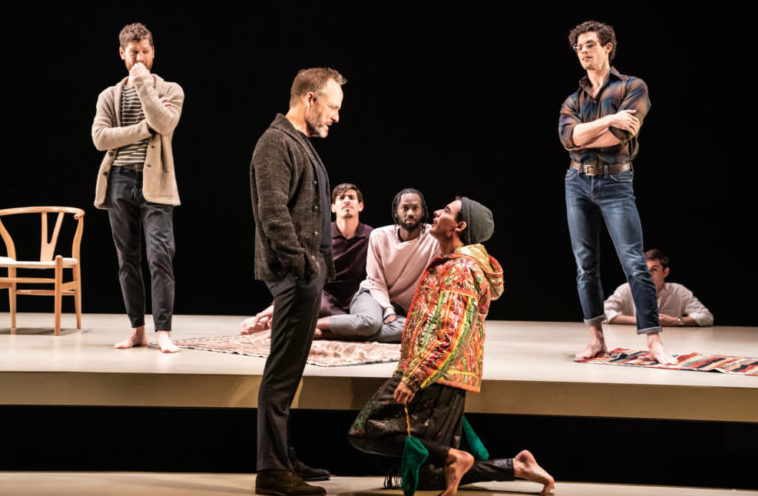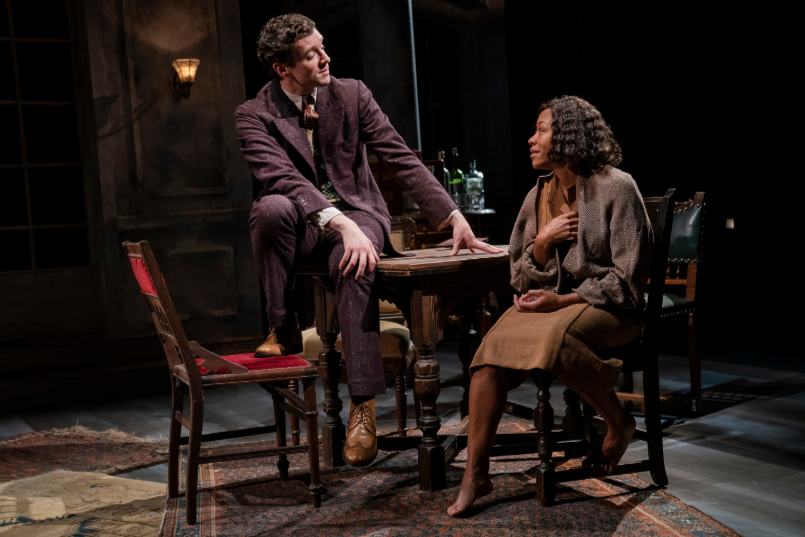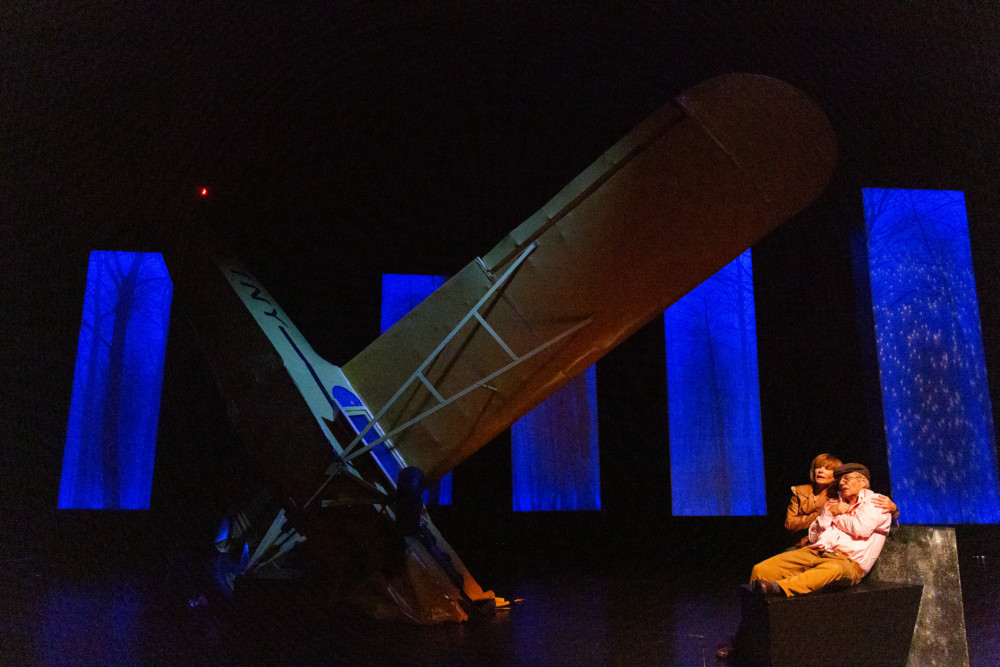By Barbara & Scott Siegel
The Inheritance
Both Broadway and Off-Broadway can boast a considerable number of truly great plays dealing with the AIDs crisis — many of them written and produced while in the midst of its worst years. The Inheritance, written by Matthew Lopez, an epic two-part play currently on Broadway at the Ethel Barrymore Theatre, pretends by its scope, length, and its Olivier Award-winning English pedigree to belong among those powerful plays like As Is, Love! Valour! Compassion!, The Destiny of Me, The Normal Heart, Falsettos, Angels in America, and so many others. It does not.
While giving The Inheritance credit for its ambition, and a raft of fine performances, the play falls and fails by virtue of its own weight. The play does not sustain its seven hour length. Nor does it sustain our interest in too many undeveloped and also too many otherwise shallow characters unworthy of our interest. Yes, there are some characters we do come to care about and there are some profoundly moving moments, especially at the end of the first full play; Lopez might have stopped there and quit while he was ahead. Simply put, this would have been a better, more powerful play had it only been carefully pruned and polished. It might not have been epic, but it would have been better.
A Bright Room Called Day
We made reference to Angels in America in the discussion above, and we shall make reference to it again, here, because its author, Tony and Pulitzer Prize Winning playwright Tony Kushner pulled an earlier one of his plays titled A Bright Room Called Day, in fact his first produced play, out of a drawer, did a stitch of rewriting, and now it is back at The Public Theater where it was first produced about thirty years ago. It should have stayed in the drawer.
This, too, is an ambitious play, and one can see the fingerprints of talent, as well as his political/social verbosity, all over this intriguing misfire. Taking place at three different times at once – 1932/33 Berlin during the fall of the Weimar Republic; during the Reagan administration in the United States by an interceding commentator from that era, and finally our current time with the playwright himself (played by Jonathan Hadary), trying to explain, perhaps, the unexplainable.
The essential problem with this play was probably Kushner’s reason for writing it in the first place. He wanted to parallel the end of freedom in Germany with the rise of Ronald Reagan in America, and when that failed thirty years ago, he thought, well, Trump! Surely that makes the connection.
Say what you will about the politics, but the attempts by both actors from the 1980s and our present era to make the past speak to the present — and vice versa — come across as just what they are: fatal interruptions in an otherwise compelling story about the end of the Weimar dream and the rise of the Nazi’s.
One November Yankee
Finally, then, there is One November Yankee – a minor two-hander at 59E59 Theaters with two not-so-minor stars, Stefanie Powers and Harry Hamlin. Written and directed by Joshua Ravetch, the play tells a story about a small engine plane crash in which a brother and sister eventually perished.
This sounds rather grim but the telling has a surprisingly light tone because neither the playwright nor the two stars take their story seriously. In fact, the show isn’t really about the plane crash at all, nor is it about another pair of siblings (brother and sister) who team up to create an art installation about the crash five years later after having read about it in a newspaper article. And, not too surprisingly, neither is it about the sister and brother hikers who discover the plane crash some time after it occurred. The play exists strictly as a star vehicle. But why these two famous actors would choose such a weak vehicle in which to display themselves is a mystery.
Powers and Hamlin remain attractive TV personalities but this play does them no favors; the three sets of characters they each get to play might have seemed, on paper, like a bright challenge in which to show off their skills. Instead, they come across as awkward, fake, and embarrassingly amateurish. This is a star vehicle, like the airplane of the title, that has crashed.




















